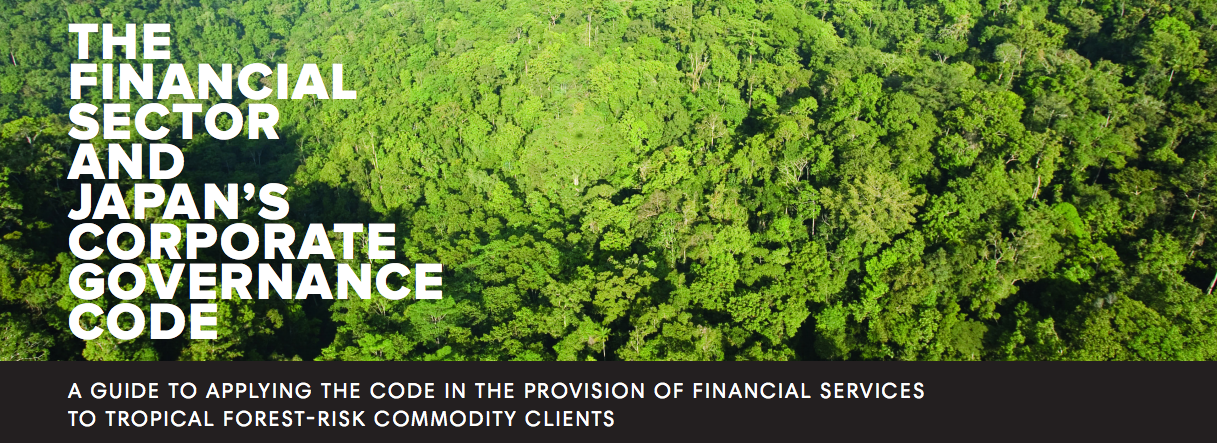Most banks don’t require proof that their clients in the tropical timber, palm oil or pulp and paper sectors have the legal right to clear forest. They don’t require proof that the rights of affected Indigenous Peoples or other forest-dependent communities are respected. And they almost certainly won’t make loans conditional on any robust environmental standards.
As absurd as it sounds, this is standard practice for banks with clients in the business of clearing tropical rainforests. With little more than a claim to a patch of forest, some collateral, and a list of willing clients to sell to, a company finds it all too easy to finance deforestation. RAN believes it’s time to stop big banks from bankrolling forest destruction and associated human rights abuses.
One of the largest sources of loans to companies engaged in tropical deforestation is Japan’s banking sector. But the tide may be turning. In June 2015, Japan’s new Corporate Governance Code (the Code) came into effect, which requires Tokyo-listed companies, including Japan’s major banks, to begin to disclose and address the range of environmental, social and governance problems they face.
RAN has produced guidance for Japan’s financial institutions in translating this new policy into practice. Companies causing forest destruction and rights violations should not be bankrolled anymore. RAN is calling on all banks, including Japan’s banking sector, to develop strong forest sector safeguard policies and systems so that only genuinely responsible forest sector clients can get bank loans.
